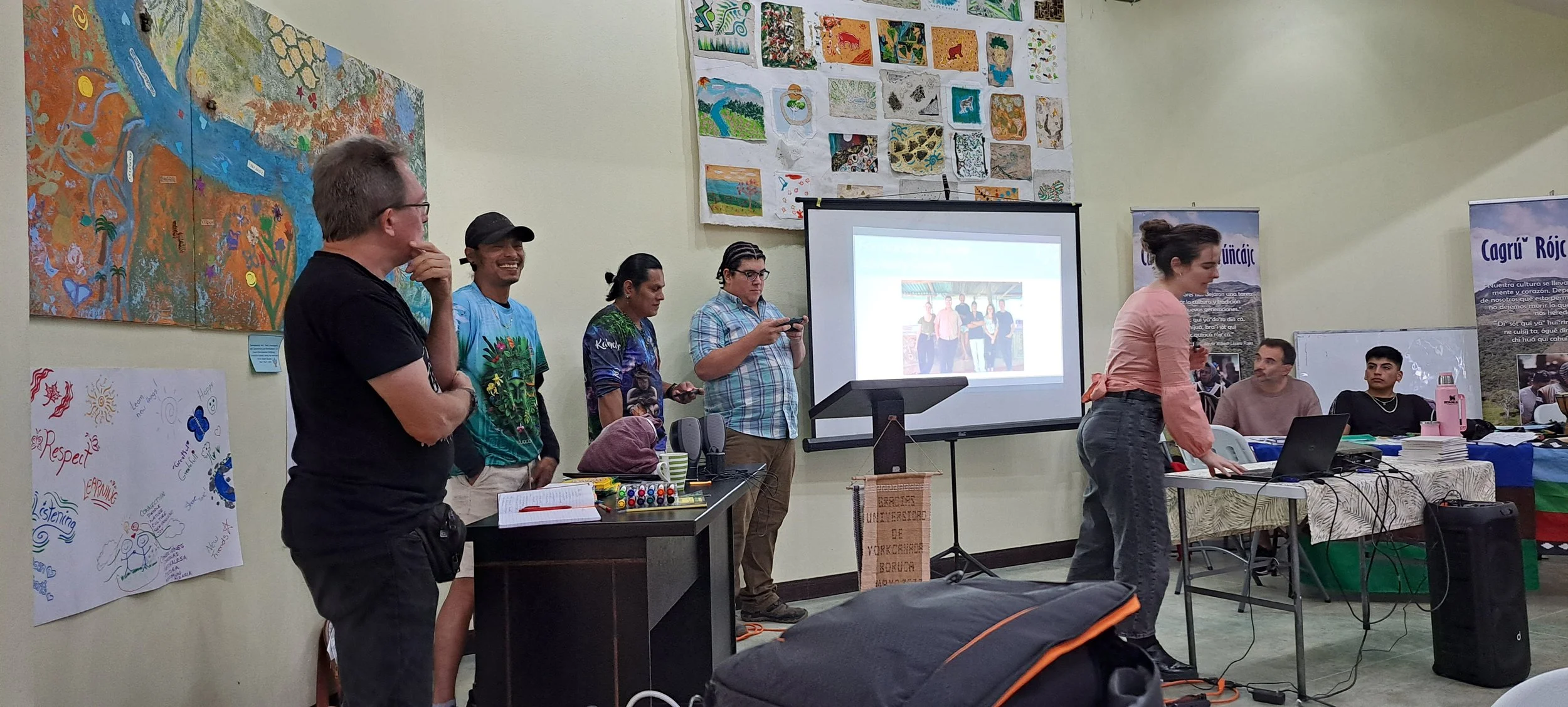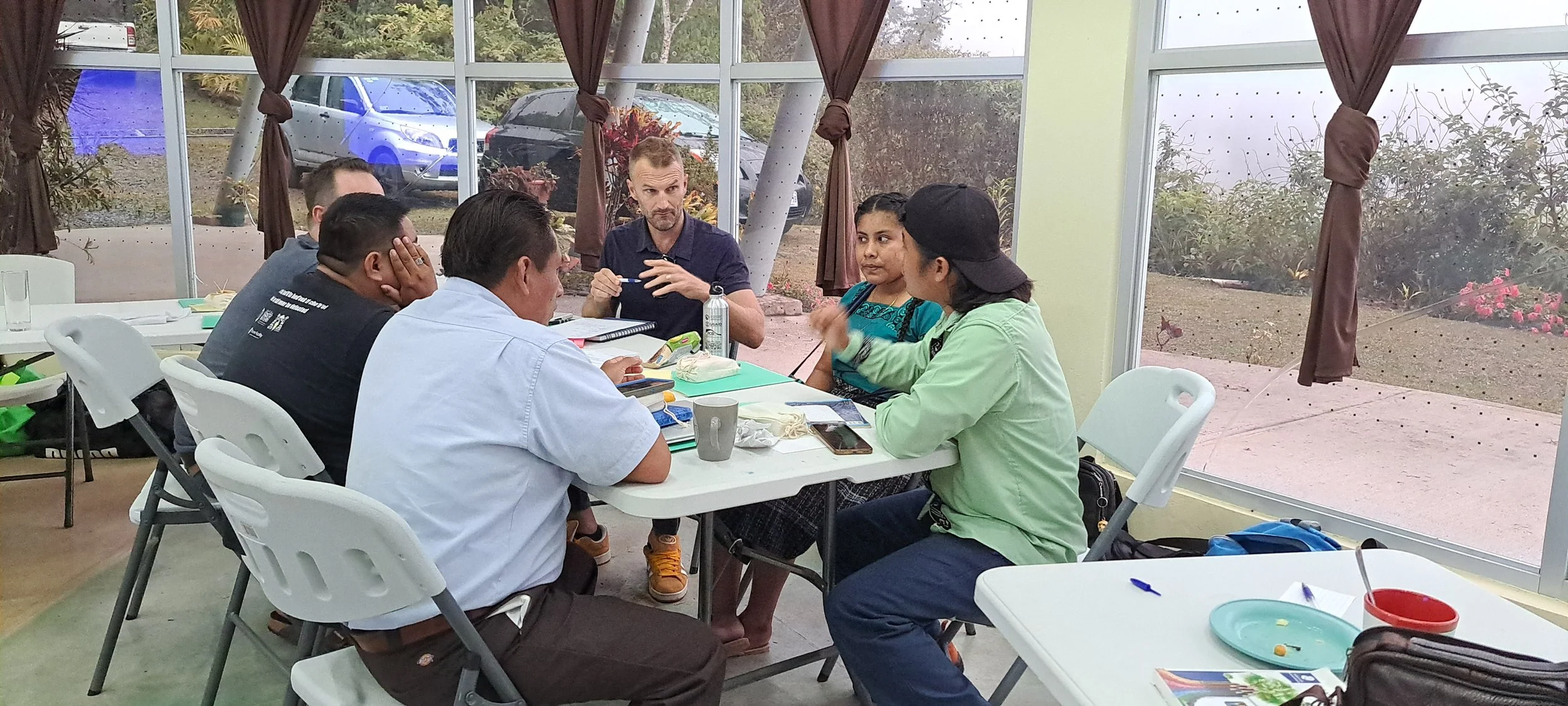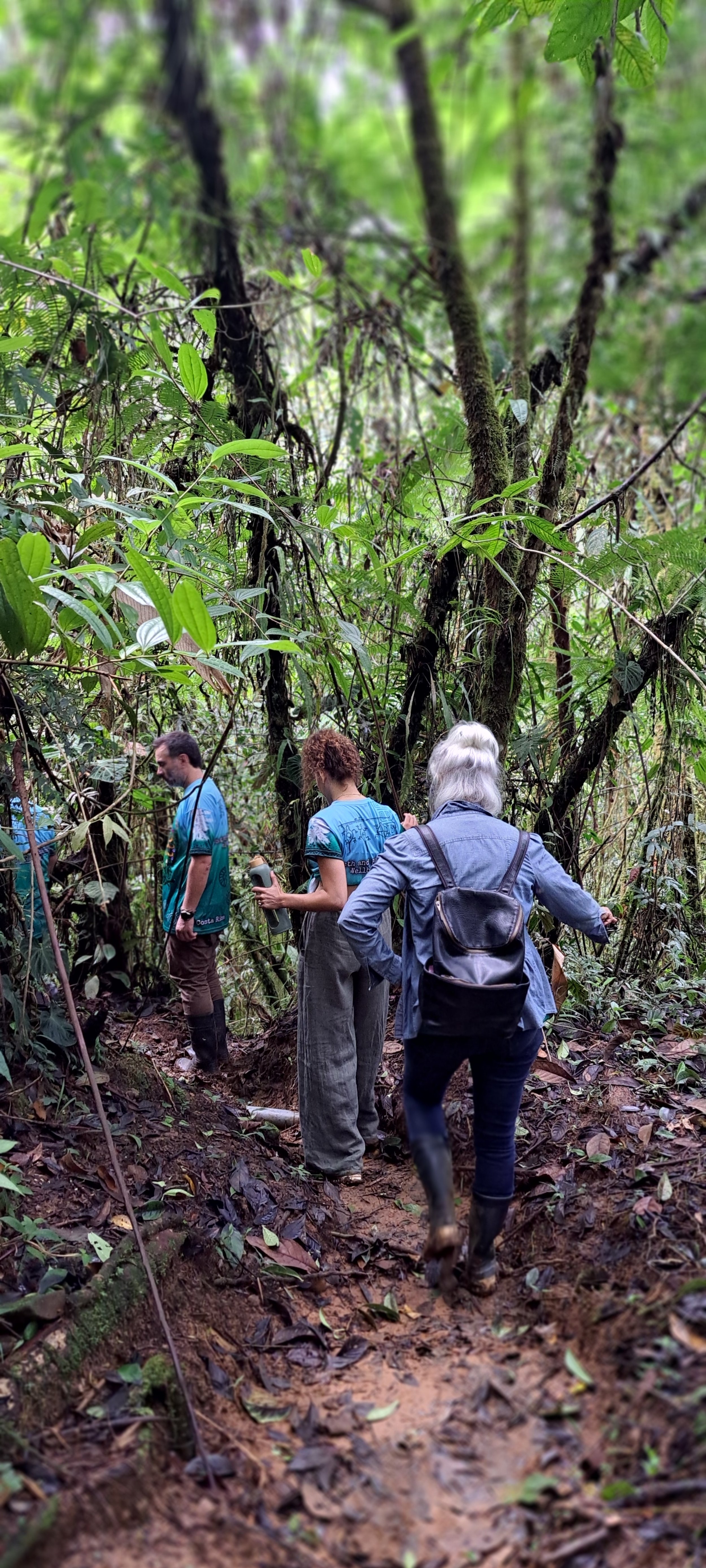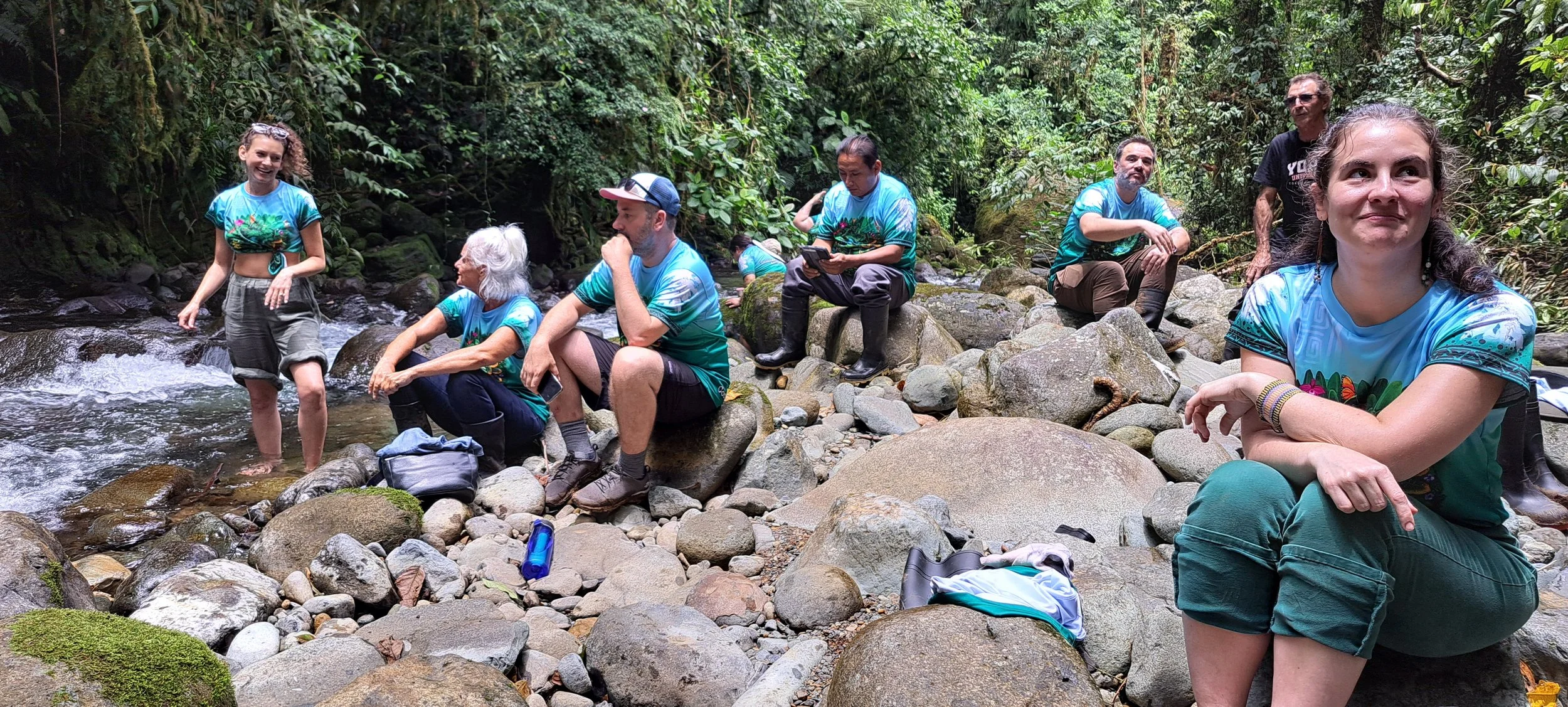Conference for Youth and Planetary Wellbeing
Las Nubes EcoCampus: August 9-11, 2025
The Conference for Youth and Planetary Wellbeing (CYCW) was hosted at York University’s Las Nubes Eco Campus in the Alexander Skutch Biological Corridor in Southern Costa Rica from August 9-11, 2025. Made possible with funding from the Social Sciences and Humanities Research Council’s Connection Grant Program, the Conference was born from the Partnership for Youth and Planetary Wellbeing (PYPW) project, which was funded by York University’s Inaugural Catalyzing Interdisciplinary Research Clusters Fund and supported with additional funding from the Dahdaleh Institute for Global Health Research and the Peterborough K.M. Hunter Charitable Foundation.
The PYPW project is an interdisciplinary, intergenerational, international collaboration with youth leaders and communities in Canada, Costa Rica, Belize and Chile. The project, detailed here, was designed to engage and support youth in action research and training opportunities to allow them to tell stories of local experiences with personal and planetary wellbeing. A Youth Advisory Committee (YAC) was engaged in each location and members of the YAC supported the co-development of research methods, participant and community engagement, co-analysis of data and unique methods of knowledge mobilization - within and across their communities. YAC members were invited and encouraged to connect and collaborate with YAC members from other locations and each expressed a desire to have the opportunity to meet in person. To respond to this request, our team at YLRL applied for and were successful in receiving a SSHRC Connection Grant to host the Conference for Youth and Planetary Wellbeing in August, 2025.
The 3-day conference began with hosts, the YAC from Costa Rica’s Brunca Region and Pérez Zeledón community, welcoming the full team and situating the group by describing the context of their communities and territory, and offering space for others to do the same. After Introductions, setting of shared values, and a tour of the Las Nubes Eco Campus, we wrapped-up day 1 so participants could return to their homestay accommodations to enjoy an evening meal with a local family. Day 2 offered intensive sharing and conversation as each group presented their research methods and findings and opened the floor for conversation about their work and learnings. A collective session on Sense Making allowed the full team to dive deeper into co-analysis of the work and findings. That evening, a shared meal made by the team at the Las Nubes Eco Campus offered time for participants to wear traditional clothing, exchange gifts and play music. The 3rd and final day started with a forest walk down to the local river, which holds great cultural and social importance to the region. (See one creative output from PYPW: Young Lives and the River). The afternoon offered final opportunities for sharing of hopes for the next steps for this important partnership, presentation of certificates and heartfelt goodbyes. The team is currently working on a co-created documentary film to share the experiences of the Conference for Youth and Planetary Wellbeing, and a report on the project methods and findings. The creative outputs that have been care-fully co-created through the unique research methods of each group can be found below.















Digital Archive - Canada
A co-created Youth and Planetary Wellbeing Digital Archive: Archive Our Youth is a time capsule of dream futures, perspectives, and resources (both real and desired). This youth-made/supported space welcomes all kinds of multi-media posts that allow users to share their experiences, ideas, hopes, fears and dreams about personal and planetary wellbeing - now and into the future.
Filmmaking - Costa Rica
Telling stories of personal and planetary wellbeing for youth and communities in the Alexander Skutch Biological Corridor in Southern Costa Rica.
Geo-docs - Belize
Filmmaking to bring planetary health issues to decision-maker levels such as the United Nations Framework Convention on Climate Change and the UN COP Conferences through the Youth Climate Report’s Planetary Health Film Lab.



